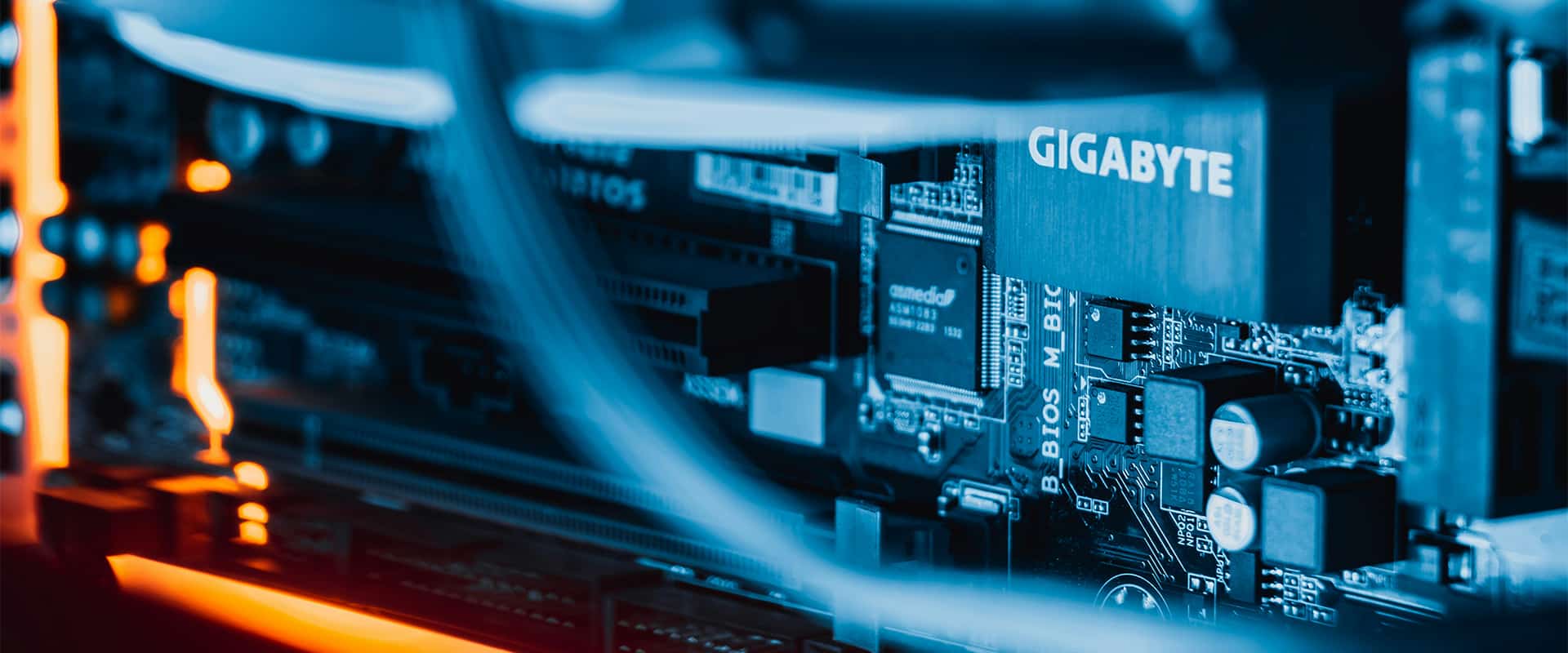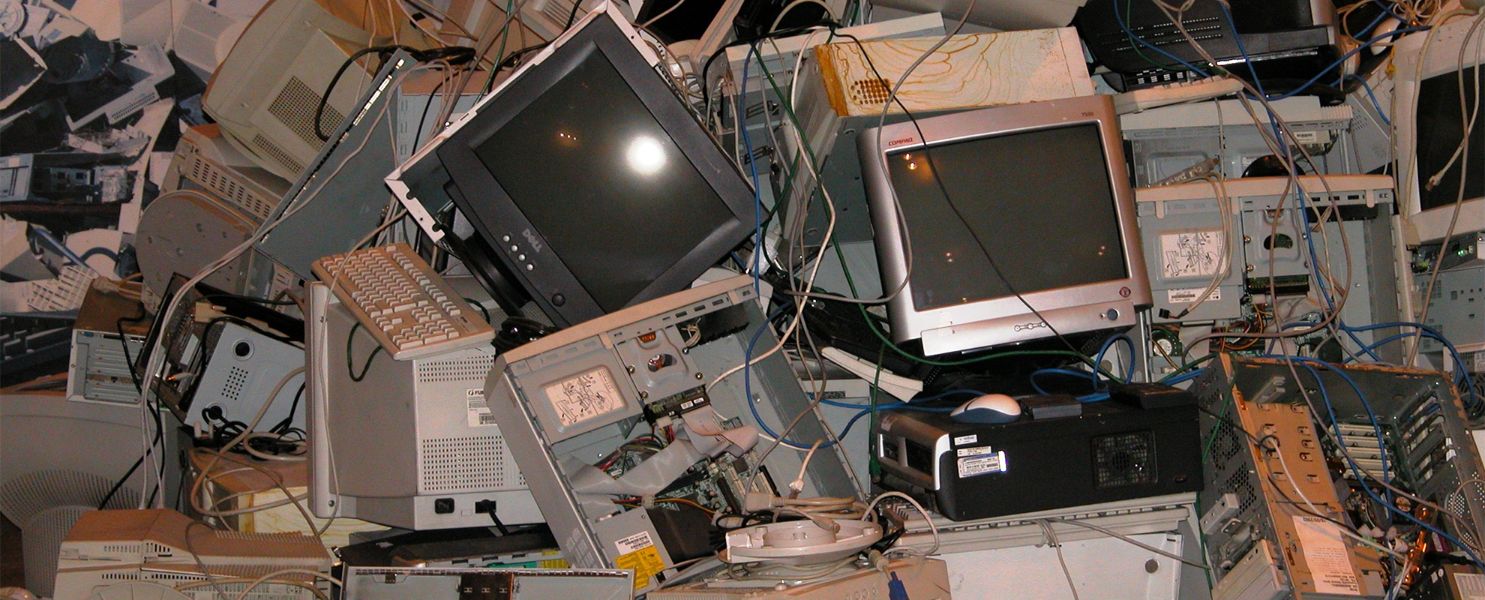You have electrical wires in your home that you don’t know what to do with them. It’s seriously starting to get in the way and you’re currently thinking about one thing, getting rid of it! Simply, before you take out your trash, you should know that more than 54 million tons of waste are thrown away every year (and this number continues to increase), according to Statista.com.
The growing accumulation of electronic waste, particularly that containing electrical wires, poses considerable risks to the environment and public health in Quebec. This waste often contains toxic substances such as lead, mercury and cadmium, which can contaminate soil and drinking water sources. In addition, exposed electrical wires pose a danger of electrocution, fire, and short circuits. It is imperative to raise awareness of the importance of proper recycling of this waste to preserve our environment and our health.

Composition and risks of e-waste
The electrical wires found in e-waste often contain hazardous materials such as copper, lead, mercury, and PVC. These substances can be harmful to the environment and human health if not properly treated. Direct contact with these materials can lead to the risk of poisoning and pollution.
Environmental and health impacts
E-waste containing electrical wires poses significant environmental and health risks. When not recycled properly, this waste can contaminate soil, waterways and the air. In addition, exposure to hazardous substances in these wastes can cause health problems such as respiratory disorders, skin diseases, and infections.
It is therefore crucial to raise awareness of the risks associated with the accumulation of e-waste containing electrical wires, and to promote responsible recycling practices to prevent negative impacts on the environment and public health.
Statistics on the accumulation of electronic waste in Quebec
The current statistics on the accumulation of electronic waste in Quebec are alarming. According to recent data, the amount of e-waste containing electrical wires has increased significantly in recent years, posing a major challenge in terms of environmental management.
E-waste regulations and management
The regulations relating to the management of electronic waste in Quebec are strict, aimed at regulating the collection, treatment and recycling of this equipment. Government agencies and companies in the information technology sector are working together to implement effective solutions to minimize the environmental impact of this waste.
In addition to the regulations in place, awareness and education programs are being rolled out to inform the public about the importance of recycling e-waste and the best practices to adopt to preserve our environment.
Recycling and Electrical Wire Processing Methods
Recycling electrical wires is essential to reduce the accumulation of electronic waste in Quebec. Processing methods include grinding wires to separate materials and recycling precious metals like copper. It is important to ensure that recycling companies comply with environmental standards to minimize the impact on the ecosystem.
Government Initiatives and Product Responsibility
Government initiatives such as the establishment of separate e-waste collection programs and extended producer responsibility encourage sustainability in the management of electrical cables. Manufacturers are increasingly required to finance and implement recycling systems to meet their environmental responsibility.
In addition to government initiatives, it is essential for manufacturers to incorporate sustainable practices into the design of their products to reduce the amount of e-waste generated. This requires close collaboration between businesses, governments and consumers to ensure effective management of end-of-life electrical wires.
Public Education and Awareness
It is crucial to raise public awareness of the dangers of the accumulation of electronic waste containing electrical wires in Quebec. By developing a collective awareness of the environmental impact and health risks associated with this waste, we can encourage responsible and sustainable behaviour.
Education and waste collection programs
Education and waste collection programs play a critical role in the proper management of e-waste. By informing the public about good recycling practices and by setting up accessible collection infrastructure, these programs help reduce the accumulation of electronic waste in Quebec.
Awareness-raising initiatives can include information campaigns in schools, recycling workshops for local communities and partnerships with specialised recycling companies. In addition, the establishment of dedicated collection points facilitates the recycling process for citizens, thus encouraging active participation in the management of electronic waste.
The dangers of the accumulation of electronic waste containing electrical wires in Quebec
In conclusion, the growing accumulation of electronic waste containing electrical wires in Quebec poses serious dangers to the environment and public health. The toxicity of the heavy metals present in this waste poses a threat to the quality of the air, water and soil. In addition, the risks of fire and electric shock associated with the improper handling of this waste should not be underestimated. Raising awareness, strengthening regulations for e-waste management, and promoting responsible recycling of e-waste is imperative to prevent environmental and health damage associated with its accumulation.

